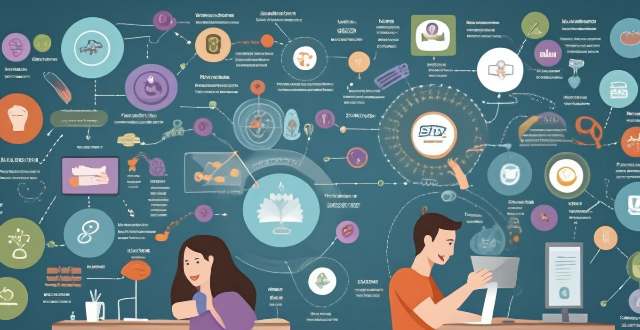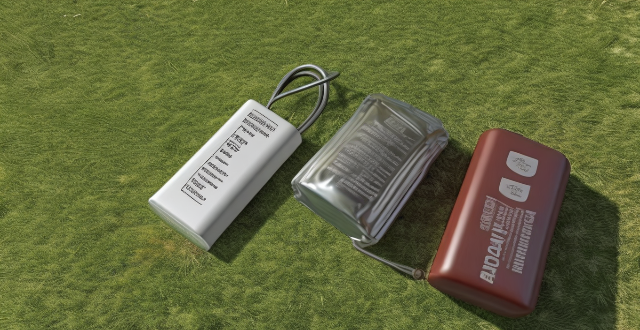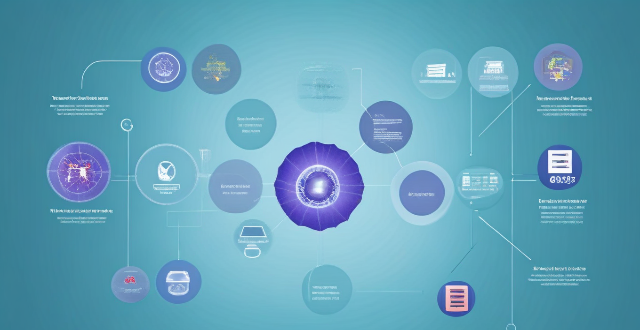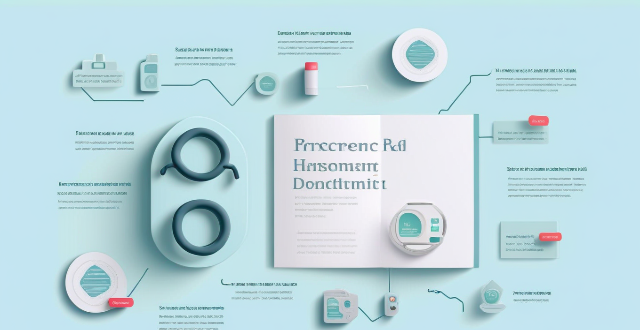Condition Infertility

Is there a link between endometriosis and infertility ?
Endometriosis is a condition where tissue that normally lines the uterus grows outside of it, leading to inflammation, scarring, and adhesions in the pelvis. This can make it difficult for sperm to reach the egg or for the egg to be fertilized. Additionally, endometriosis can cause hormonal imbalances that can affect ovulation and menstrual cycles. While the severity of endometriosis does not always correlate with the degree of infertility, it is one of the most common causes of female infertility. Other factors such as age, lifestyle choices, genetics, and other medical conditions can also contribute to infertility. If you are struggling with fertility issues, it is important to talk to your doctor about all of your options and to get a thorough evaluation to determine the underlying cause.

What are the signs of infertility in women ?
Infertility is a condition that affects many couples worldwide, defined as the inability to conceive after one year of unprotected sex for women under 35, or six months for those over 35. There are several signs and symptoms that may indicate a problem with fertility in women, including irregular menstrual cycles, painful periods, no ovulation symptoms, excessive weight gain or loss, difficulty getting pregnant after one year of trying, and other potential signs such as abnormal bleeding between periods, recurrent miscarriage, chronic pelvic pain, and unexplained infertility. It is essential to seek medical advice if you are experiencing any of these symptoms or have concerns about your fertility.

How can counseling help women dealing with infertility-related stress ?
Counseling is crucial for women dealing with infertility-related stress. It helps identify emotional distress, address mental health concerns, build resilience and coping strategies, navigate medical treatment options, and foster hope and healing. By providing emotional support and promoting self-care practices, counseling empowers women to face the challenges of infertility with strength and courage.

How does having a pre-existing condition impact my ability to buy insurance ?
The text discusses the impact of pre-existing conditions on insurance purchase, including eligibility, cost, waiting periods, exclusions and limitations. It also provides tips for buying insurance with a pre-existing condition such as researching options, disclosing relevant information, considering government-sponsored plans, and working with an insurance broker.

What are the common fertility issues faced by women ?
Fertility issues can be a sensitive and complex topic for many women. There are several common fertility problems that women may face, which can impact their ability to conceive and carry a pregnancy to term. These include ovulation disorders, endometriosis, uterine fibroids, tubal blockage, and age-related infertility. It's important for women who are struggling with fertility to seek medical advice and explore treatment options that best suit their individual needs and circumstances.

What is the success rate of in vitro fertilization (IVF) for women ?
In vitro fertilization (IVF) success rate for women depends on age, cause of infertility, and quality of eggs and sperm. Younger women with healthy eggs and sperm have higher chances of success, while older women or those with certain causes of infertility may face lower success rates. Other factors such as the number of embryos transferred, clinic experience, and use of assisted reproductive technologies can also impact the outcome. It is important to consult with a qualified fertility specialist to determine the best course of action for achieving pregnancy through IVF.

What are some effective strategies for managing chronic conditions as part of personal health care ?
Managing chronic conditions requires a combination of self-care, education, lifestyle changes, and support from others. Developing a self-care plan, educating yourself about your condition, making healthy lifestyle choices, and seeking support from family and friends are all effective strategies for managing chronic conditions. By taking an active role in managing your symptoms and communicating effectively with your healthcare team, you can improve your overall quality of life and reduce the impact of your condition on your daily activities.

Can you recharge a dead lead-acid battery ?
Recharging a dead lead-acid battery is possible, but it depends on the condition of the battery and how long it has been discharged. Here are some steps to follow when attempting to recharge a dead lead-acid battery: Check the battery's condition, determine the battery's voltage, choose the right charger, connect the charger to the battery, monitor the charging process, and test the battery after charging. In summary, recharging a dead lead-acid battery is possible as long as the battery is in good condition and the correct charging procedures are followed.

Is it safe to drive at night during a road trip ?
Driving at night during a road trip can be exhilarating but also risky due to reduced visibility and potential for drowsiness. To ensure a safe journey, consider safety precautions such as checking headlights and fog lights, taking breaks every two hours or 100 miles, being extra vigilant in areas with wildlife, maintaining vehicle condition, using technology wisely, being prepared for emergencies, checking weather conditions, obeying legal requirements and regulations, and getting adequate sleep before starting the trip. By following these guidelines, you can help ensure a safer journey under the stars.

How long should a couple try to conceive before seeking medical help ?
This article provides guidance on how long couples should try to conceive naturally before seeking medical assistance. The recommended time frame varies based on the woman's age and other health factors. Women under 35 are advised to consult a doctor if they haven't conceived after a year of trying, while those over 35 should seek help after six months due to declining fertility with age. The text also emphasizes the importance of maintaining a healthy lifestyle and suggests that both partners get evaluated for potential fertility issues. It further touches upon additional considerations such as pre-existing conditions and the option of exploring alternative approaches alongside conventional treatments.

Can wearable technology effectively monitor chronic health conditions ?
Wearable technology shows potential in monitoring chronic health conditions by providing real-time data on health metrics. However, accuracy, data overload, and privacy concerns are limitations to consider. It should be used in conjunction with other forms of healthcare monitoring for effective management of chronic conditions.

What is the difference between acute and chronic conditions in first aid ?
The article discusses the difference between acute and chronic conditions in first aid, highlighting key points to remember for each type. Acute conditions are sudden, severe, and short-term, often requiring immediate action and potentially lifesaving interventions. Examples include heart attack, stroke, severe allergic reactions, fractures or dislocations, poisoning, severe burns or scalds, and severe bleeding or shock. Key points to remember for acute conditions are to act quickly, call for help, and stabilize the patient while waiting for professional medical assistance. Chronic conditions, on the other hand, are long-term health problems that persist over time and often require ongoing management rather than urgent intervention. Examples include diabetes, asthma, high blood pressure, arthritis, COPD, migraines, and epilepsy. Key points to remember for chronic conditions are to know the patient's history, monitor symptoms, seek medical advice, and educate yourself about the specific condition. In summary, understanding the differences between acute and chronic conditions is essential when providing first aid to ensure appropriate care is given based on the nature of the condition.

What are the symptoms of hypothermia and how can I treat it ?
The text discusses the symptoms and treatment of hypothermia, a condition that occurs when the body loses heat faster than it can produce. Symptoms include shivering, slurred speech, slow breathing, weak pulse, clumsiness, drowsiness, confusion, and loss of consciousness. Treatment involves moving the person to a warm location, removing wet clothing, warming them up gradually with blankets or hot water bottles, giving them warm fluids, and seeking medical attention immediately. The text emphasizes the importance of prevention by dressing appropriately for cold weather conditions, staying dry, and limiting time outdoors during extreme weather events.

How does adequate sleep play a role in women's health ?
Adequate sleep is vital for women's health, affecting immunity, hormone balance, weight management, mental well-being, cardiovascular health, skin condition, chronic disease prevention, and overall quality of life. Prioritizing sleep can lead to fewer sick days, better reproductive health, reduced stress, improved mood and cognitive function, lower risk of heart disease and stroke, delayed aging signs, and a higher quality of life.

Are pre-existing medical conditions covered by travel insurance ?
Travel insurance coverage for pre-existing medical conditions varies by policy and provider. Factors influencing coverage include the type of policy, deductibles and limits, waiting periods, and disclosure of information. Some policies offer limited or comprehensive coverage for these conditions, while others exclude them altogether. It is crucial to research different policies and consult with an insurance professional to find the best coverage for your individual needs.

How can older adults with chronic conditions incorporate exercise into their daily routine ?
Incorporating exercise into the daily routine of older adults with chronic conditions is crucial for maintaining their overall health and well-being. Here are some tips on how they can achieve this: * Start slowly by gradually increasing the duration and intensity of low-impact exercises like walking or swimming. * Choose appropriate exercises that focus on strength training, flexibility, and range of motion to reduce the risk of injury. * Set realistic short-term and long-term goals to build momentum and confidence. * Make exercise a habit by scheduling specific times during the day and creating a routine. * Stay safe and comfortable by wearing appropriate gear, staying hydrated, and seeking professional advice when needed. * Track progress in a journal and celebrate milestones to stay motivated.

How can I customize my emergency kit for specific medical needs ?
Customizing an emergency kit for specific medical needs is crucial for individuals with health conditions. To tailor your kit, assess your medical needs, list down medications, and identify potential complications. Incorporate specialized equipment like diabetes management tools or heart condition medication. Include general first aid supplies, information cards, and instruction manuals. Don't forget communication tools and personal comfort items to alleviate stress during emergencies. Being prepared can significantly impact managing your health in disaster situations.

What role do ovarian reserve tests play in understanding female fertility ?
Female fertility is influenced by age, health, and lifestyle choices, with ovarian reserve—the number and quality of eggs in the ovaries—playing a key role. Ovarian reserve tests measure hormones like AMH and FSH, and use ultrasound for AFC and ovarian volume assessments, to gauge reproductive potential. These tests aid in understanding chances of conception and guide treatment decisions without guaranteeing pregnancy outcomes. Women considering pregnancy or facing infertility should consult healthcare professionals about their ovarian reserve.

What are the long-term consequences of untreated mental health conditions in women ?
The text discusses the severe and long-lasting consequences of untreated mental health conditions in women, which can affect their overall well-being, relationships, and quality of life. These consequences can be physical, emotional, and social, and they often compound over time. The most significant long-term effects include increased risk of chronic diseases, compromised immune system, sleep disorders, escalation of symptoms, self-medication, suicidal thoughts and behaviors, strained interpersonal relationships, workplace challenges, financial difficulties, reduced life satisfaction, limited participation in activities, and poor self-esteem. It is essential to recognize that these conditions do not improve over time without intervention and instead worsen, causing a ripple effect that touches every aspect of a woman's life. Early detection and treatment are crucial for managing mental health disorders effectively and preventing these long-term consequences. Seeking support from professionals such as therapists, psychiatrists, or counselors can provide the necessary tools and resources to address mental health concerns and improve overall well-being.

How does work-life balance impact women's physical health and well-being ?
The article discusses the impact of work-life balance on women's physical health and well-being, highlighting the following key points: 1. **Stress and Mental Health**: Work-life imbalance can lead to chronic stress, weakening the immune system and increasing the risk of mental health issues like anxiety and depression, which in turn can cause physical health problems. 2. **Physical Health**: An unbalanced lifestyle often results in a sedentary lifestyle and poor eating habits, leading to weight gain, obesity, and an increased risk of chronic diseases. 3. **Reproductive Health**: Excessive stress and unhealthy lifestyle habits can affect women's reproductive health, causing menstrual irregularities, infertility, and complications during pregnancy. 4. **Quality of Life**: Work-life imbalance can significantly impact a woman's quality of life, leading to feelings of dissatisfaction, reduced productivity, and strained relationships. Maintaining a work-life balance is crucial for ensuring that women's physical health and overall well-being are not compromised.

How do weather conditions affect wildlife viewing opportunities ?
This article discusses how weather conditions can influence wildlife viewing opportunities. It highlights the effects of rainfall, snowfall, temperature changes, and wind conditions on both wildlife behavior and viewers' experiences. By understanding these factors, enthusiasts can plan their excursions strategically and increase their chances of encountering various species in their natural habitats.

Can lifestyle changes improve women's hormonal balance ?
Lifestyle changes can improve women's hormonal balance, including dietary choices, exercise habits, stress management, hydration & environmental factors, and supplementation & natural remedies.

Are there any lifestyle changes that can boost female fertility ?
Female fertility can be influenced by various lifestyle factors, including weight, diet, exercise, stress levels, smoking, and alcohol intake. Making changes in these areas can boost fertility. Maintaining a healthy weight, eating a balanced diet, getting regular exercise, managing stress levels, quitting smoking, limiting alcohol intake, and considering alternative treatments like herbal supplements and acupuncture can all contribute to improving female fertility. It's essential to work closely with a healthcare provider to determine which lifestyle changes are best suited for individual needs and circumstances.

How does nutrition affect women's fertility ?
Nutrition plays a crucial role in women's fertility, affecting both their physical and mental health. Being underweight or overweight can negatively impact fertility, as can a diet that is too low or too high in calories. Vitamins and minerals play important roles in hormone production and metabolism, and deficiencies in certain vitamins and minerals can negatively impact fertility. Eating a balanced, healthy diet that includes plenty of fruits, vegetables, whole grains, lean protein, and healthy fats can improve overall health and fertility. Excessive alcohol consumption, caffeine intake, micronutrient deficiencies, environmental factors like pollution and exposure to toxins, stress, and smoking can also negatively impact fertility. Maintaining a healthy diet, lifestyle, and environment can positively impact women's fertility by supporting overall health and hormone balance.